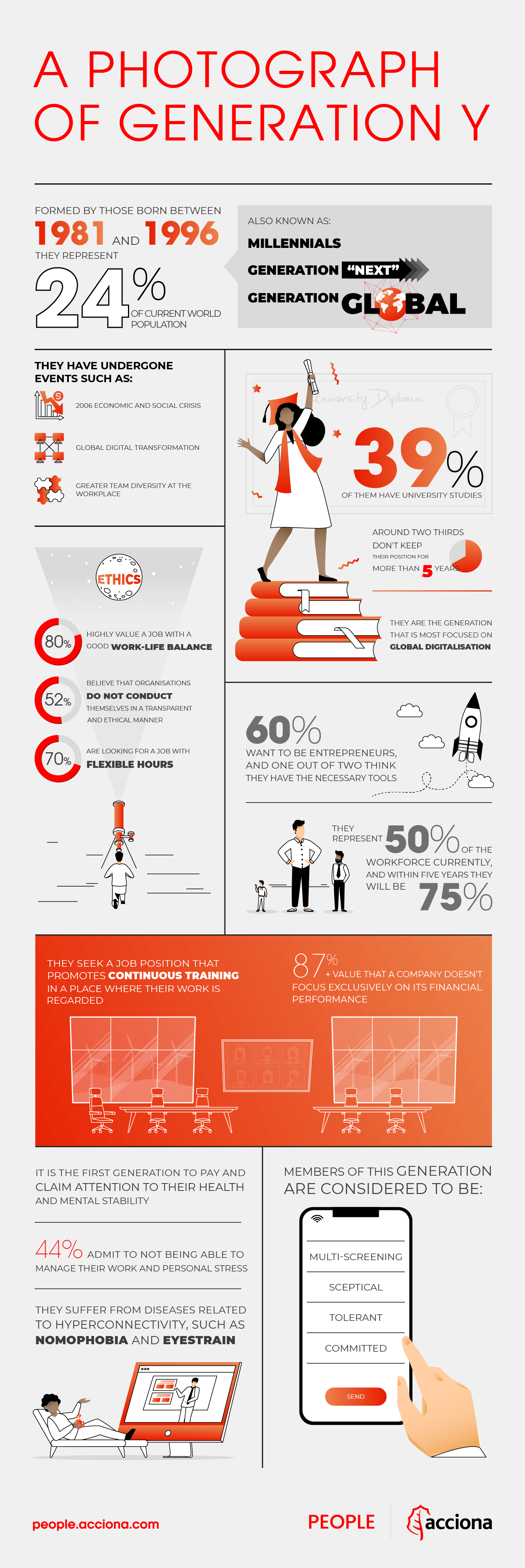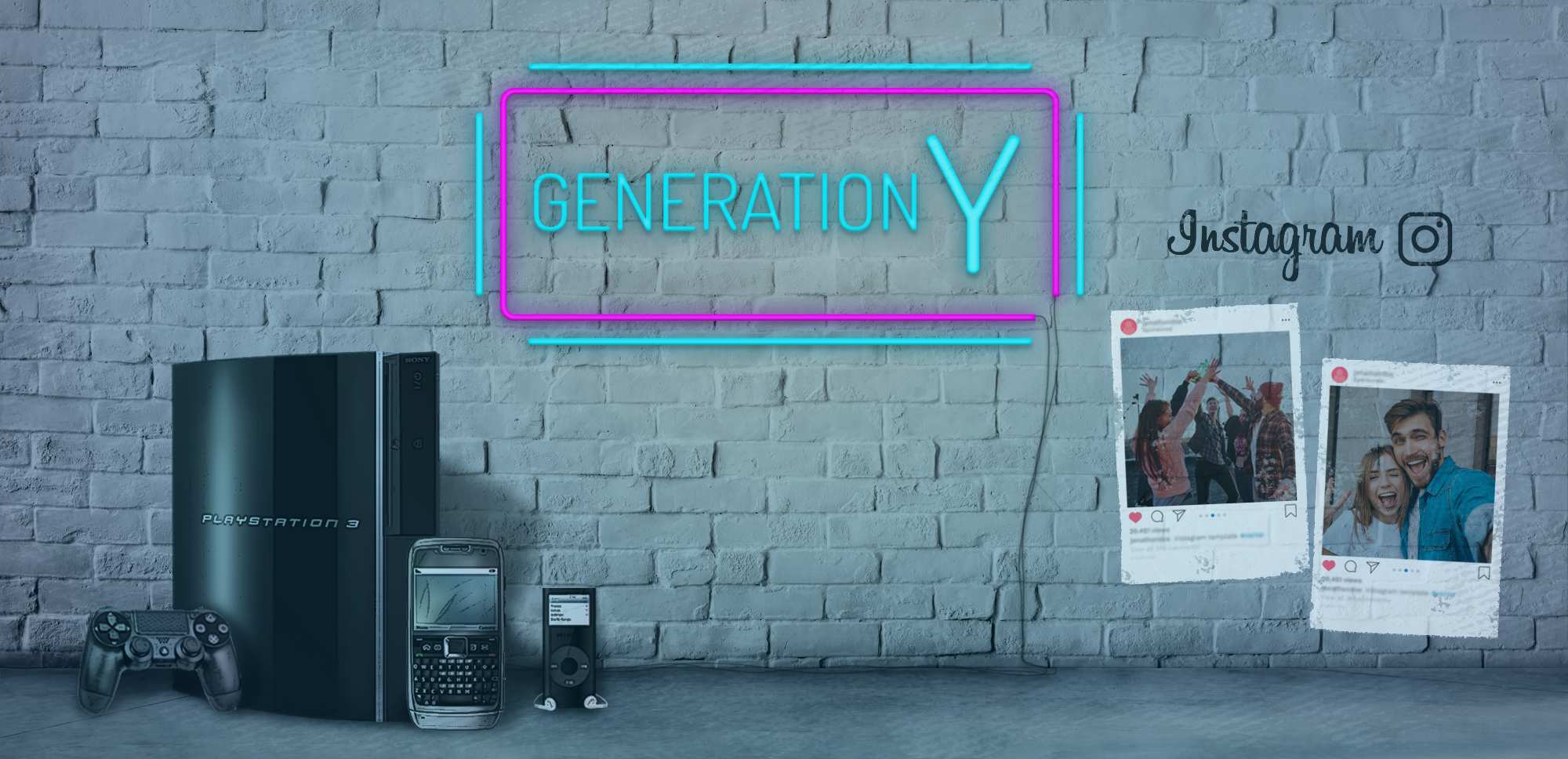“Success is about being happy on Sunday afternoons“. The quote is by Josep Lluís Rovira, a prestigious Catalan businessman – former president of Pimec which has stakes in 7 companies – and honorary consul general of Estonia in Barcelona. He said it in a recent interview, sculpting in black on white a way of understanding life and work, far away from the 79 years that appear on his ID card. This philosophy sums up the feelings of Generation Y, also known as Millennials, whose most sought-after motivations in favour of work-life balance can be divided into six categories.
Millennials: a personal and professional generation
Professional recognition. We are talking about a social stratum made up of those born between 1982 and 1996, with a strong sense of non-conformism and with different priorities to those of their X generation predecessors. Abandoning comfort for a string of challenges and the search for recognition. Putting the development of his professional career at the centre of their priorities. Rovira himself delves into this by pointing out that “persevering in dreams is achieving them” (…) and summarising the recipe for success in five words: “Doing something that makes you feel accomplished“.
Opportunity for personal development: this millennial ambition, however, has been distorted by those who see them as rivals in order to portray them as “narcissistic” or “selfish” on the basis of Time magazine’s controversial May 2013 cover of ‘The Me Me Generation’. Calling them navel-gazers when their great sin is to want to work in a place that means something to them and to do so with an insatiable appetite for generating an impact, for leaving a mark. Just because they live the present without waiting for the future. Hooked up to a daily dose of dopamine that they get from their increasing use of new social networks that give them that immediacy that supports their raison d’être.
A model based on the work of equals: this is a two-way communication that they wish to replicate in the professional field as well, eager to receive regular feedback from management teams in order to focus on the task at hand and not lose time in their personal growth. An “almost instantaneous feedback“.
As Manpower Group points out in its study ‘The Careers of Millennials: The 2020 Vision’, “it is time for employers to rethink their HR strategies in light of the fact that Generation Y already constitutes one third of the world’s workforce,” including some of the brightest talents on the scene.
Professional growth: “millennials,” the study continues, “know that the race ahead of them is more like a marathon. The age of early retirement at 50 or 60 with a gold watch as a gift is a thing of the past. Most people are well aware that they are going to work longer than previous generations” so, instead of having a job for life, “they understand the need to have a continuous development of skills so that there is still work for them”. And it’s not enough for them to have free coffee or table football available in the company canteen.

The importance of corporate culture
Training and continuous learning. Pilar Llácer, researcher at Barcelona’s EAE business school, warns that the millennials are forcing a change in the business paradigm, both in leadership style and in organisational culture. “The concept of loyalty to the company is no longer the same,” she says.
Their initial commitment is short term, although they are capable of renewing it repeatedly as long as they are motivated. A way of doing things that clashes when their bosses – comprised of people from two or three previous generations – give up encouraging it by seeing it as a handicap rather than an advantage. “Because while they are in a company, they are highly motivated”, says Llácer, who highlights their predisposition “to new learning, their curiosity and their desire to absorb knowledge“.
Organizational culture. The challenge, therefore, is to provide Generation Y with the necessary incentives to succeed in balancing life and work. And it’s not about money, as determined by a recent LinkedIn survey where 86% of the millennials would accept a pay cut to work in a company that shares the same values as theirs. A figure that plummets to 9% in the case of baby boomers.
Change of mentality in search of mutual commitment
Having detailed all of the above, companies that intend to prosper in a decade that will end the millennial generation as the main workforce must make an extra effort to build a socially committed work philosophy. Promoting a professional roadmap for employees along with the greatest transparency in decision making involving all their teams, so that none of the parties will be burdened to return to the office when the beginning of the working week is due.
Sources: Workstars, Manpower Group, American Bar Association


